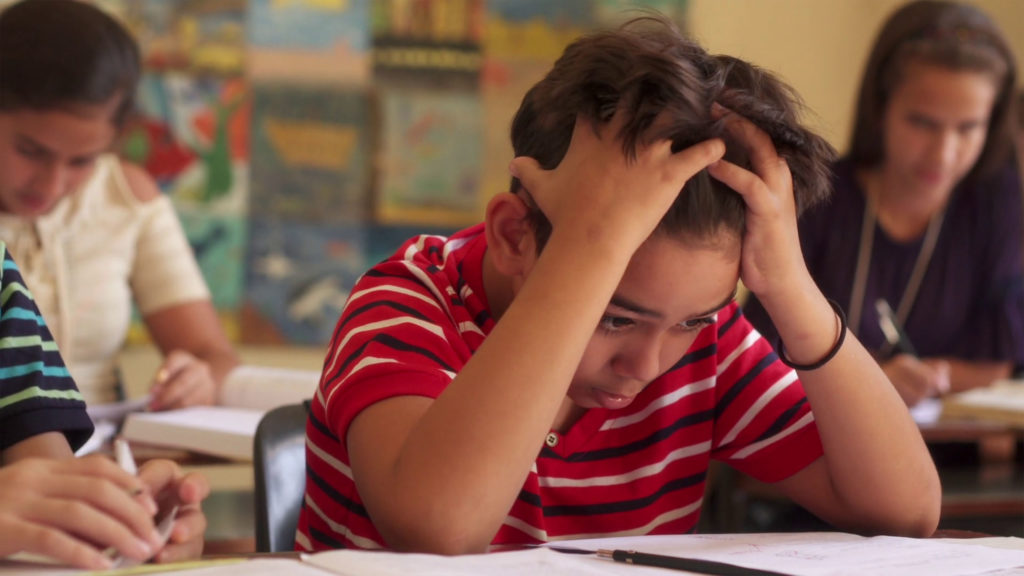Dealing with conflict in pupil referral units

Some students push their teachers to the limits of their capabilities but some pupil referral units are adopting restorative practices to manage conflict more effectively.
Many educational surveys demonstrate how exhausted and burnt out a large proportion of teachers are, not only through an ever-increasing workload but by having to deal with some very challenging behaviours in and out of the classroom.Being at the receiving end of direct defiance, disrespect and verbal abuse is hard to take, especially when it happens in front of other students.
Many educators, understandably, take this personally and allow it to affect how they feel about their work. Many teachers even leave the profession because they find this aspect of their work untenable. Those who stay have had to develop a variety of coping strategies to deal with poor behaviour.
“The best teachers recognise that returning to a conflict situation when things have calmed down will be the most effective way of dealing with a student who is not prepared to listen and conform.”
They know that some students need an audience to thrive and that speaking to an individual after everyone else has gone allows for making good what has been wronged, an opportunity to explain what has gone on, for both sides, and agreeing on a way forward.
Having worked with the most challenging students in one of London’s largest pupil referral units, I have rarely come across a student who did not respond positively to a conversation after the event, when emotions have subsided and reason has returned.
However, even experienced educators can be emotionally affected by provocative and abusive behaviours at school. The best ones don’t show it when it is happening but carry feelings of being disrespected and ‘dissed’ throughout the day and even home.
It is not unusual to wake up, re-live and churn over the distress of a certain conflict situation at school in the middle of the night.
The most important aspect of dealing with these feelings is the understanding that it is not personal. Students who display extreme and disrespectful behaviours do not have the skills to manage their emotions once their fight or flight mode gets going. They would lash out against anyone who they felt threatened by.
The other important aspect to remember is that everything can be resolved, in time. Some teachers may feel that conflict needs to be resolved as soon as it has happened but some children need time to reflect and an explanation once they have calmed down.
Forcing the issue, demanding compliance, even shouting and losing composure yourself, is never going to resolve conflict and improve an already fragile relationship.
Even the most extreme behaviours and incidents are resolved through restorative justice practice, this includes gang-related conflict as well as verbal and physical attacks against members of staff.
So much more mileage is to be gained from an individual who lost their composure once they have been given an opportunity to calm and reflect. Allowing a student back into your classroom after having had a reasonable and calm conversation is much more productive and beneficial in the long term than ignoring or shunning them, letting others deal with challenging behaviours or not taking any action at all.
Many students who have been excluded from their mainstream school are not used to having to address and meaningfully explain their behaviour to the person they have harmed.
This is why increasing numbers of pupil referral units have started adopting the principles of restorative justice – a practice designed to allow the ‘doer of harm’ and the person who has been harmed to communicate through mediation, make amends and move forward, allowing them to continue their relationship peacefully.
Adopting restorative practice in our pupil referral unit has allowed us to reduce exclusions significantly and has given the most challenging students an opportunity for a fresh start every time.
It has transformed the way we deal with conflict and how our students see their teachers at school, paving the way for a more conciliatory approach and better, more trusting relationships between students and staff.
As a result of adopting a more inclusive and less punitive approach, we have a cohort of extremely challenging pupils who have started to trust adults and the education system, who are prepared to work with us and engage with their learning.







Responses